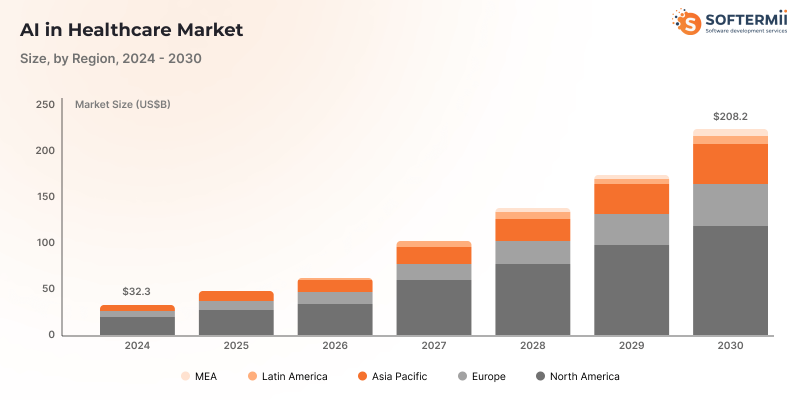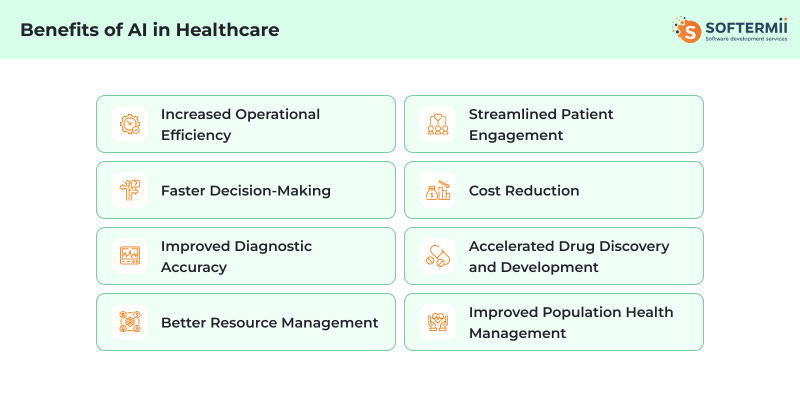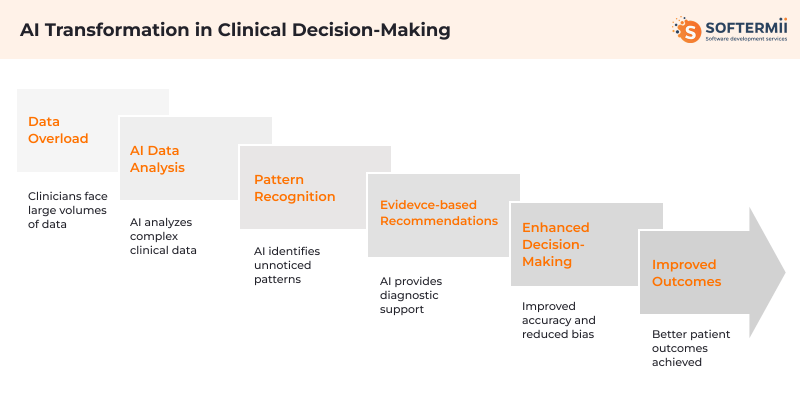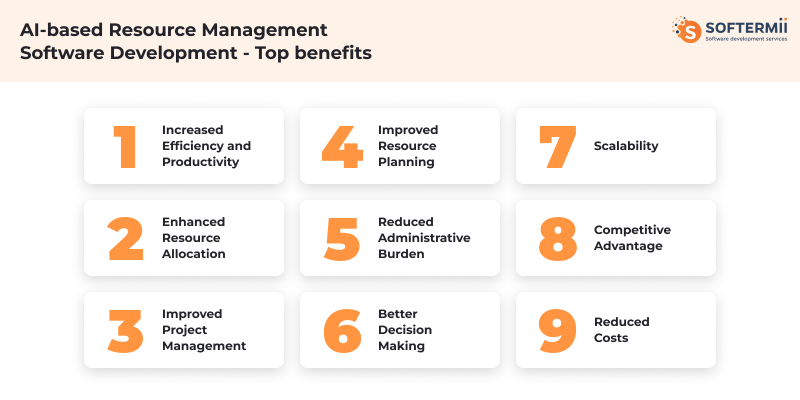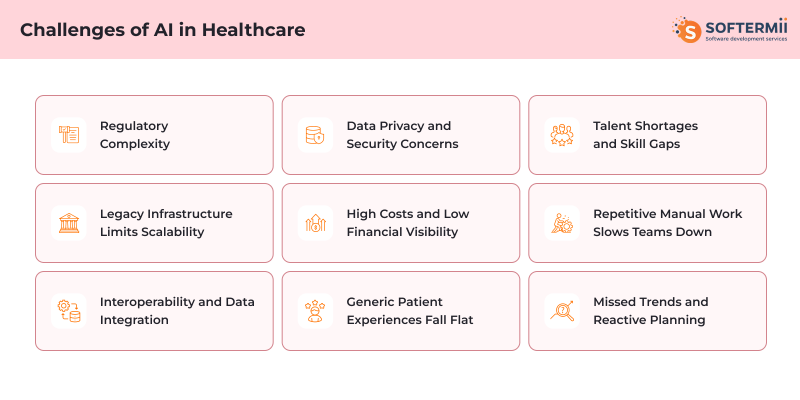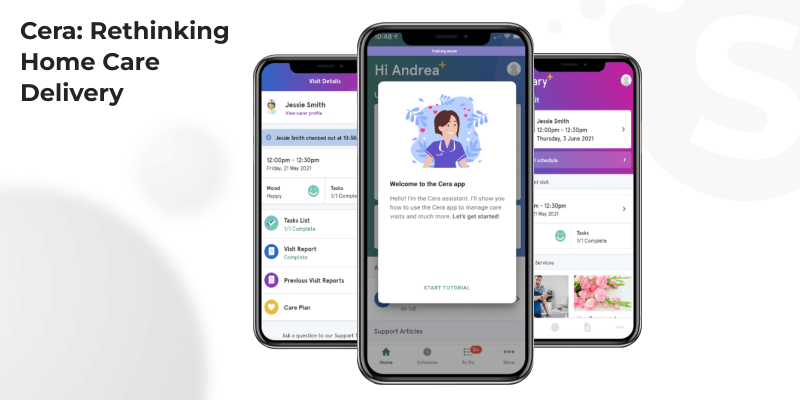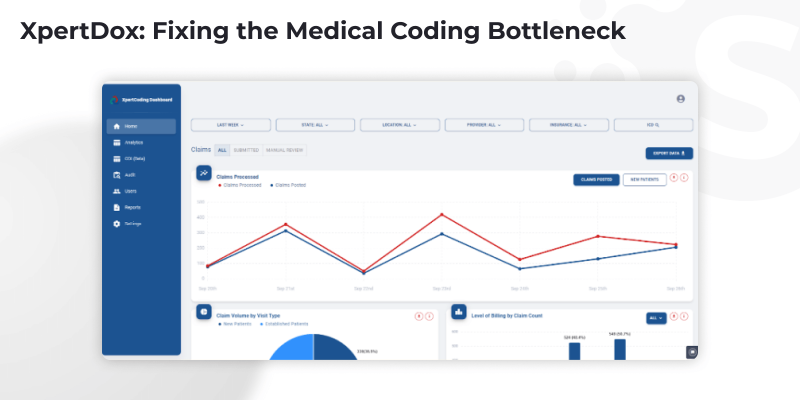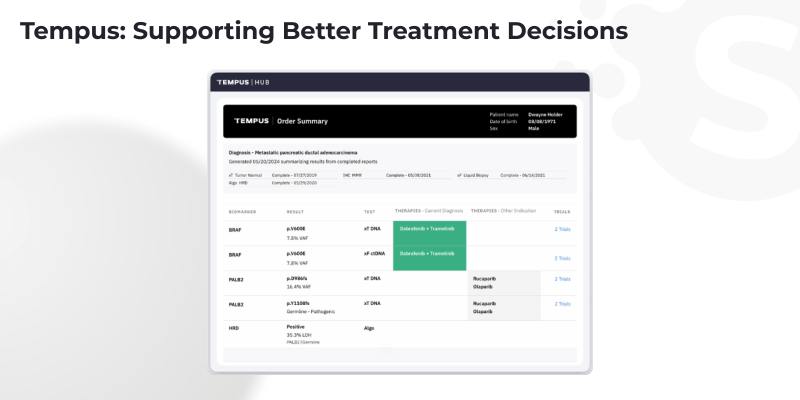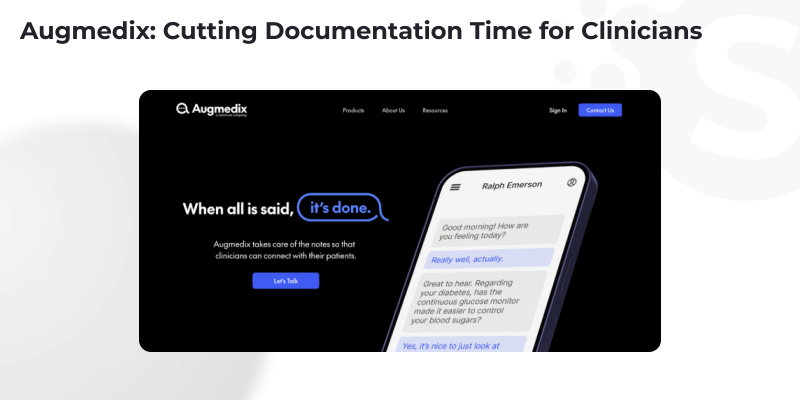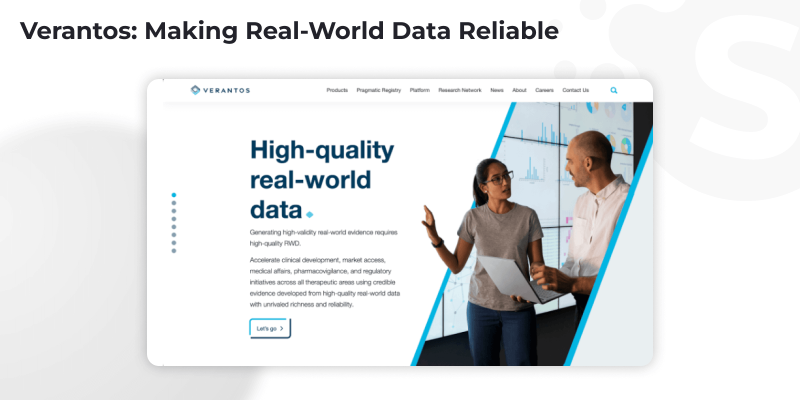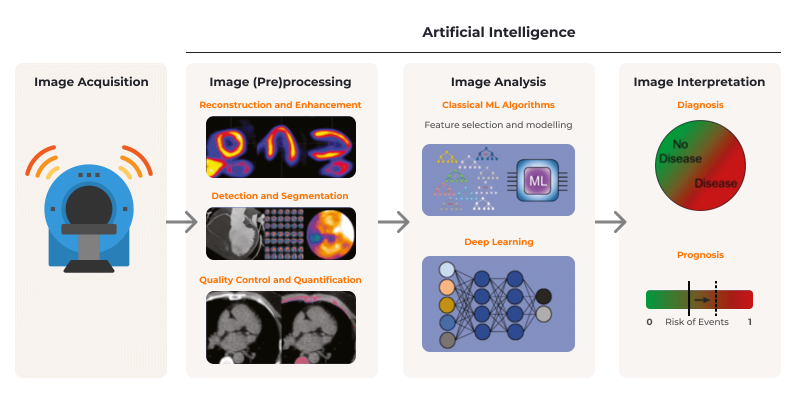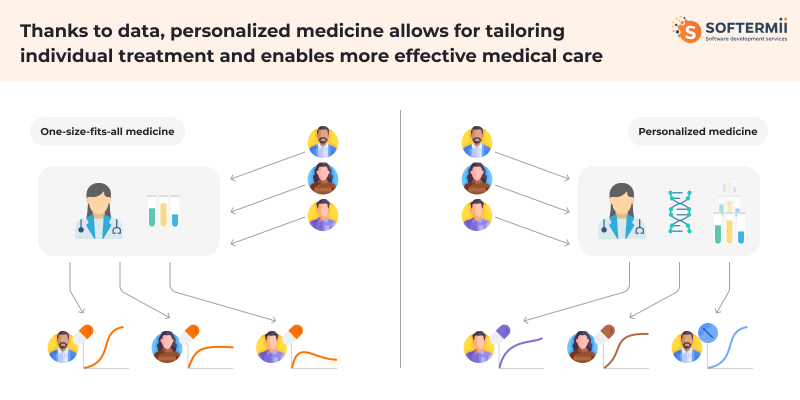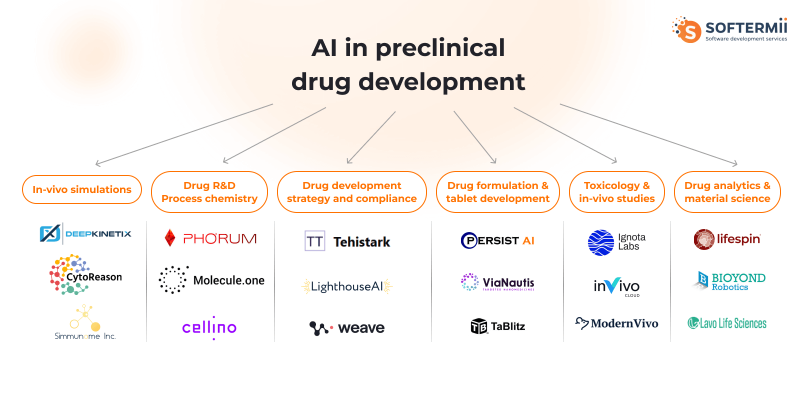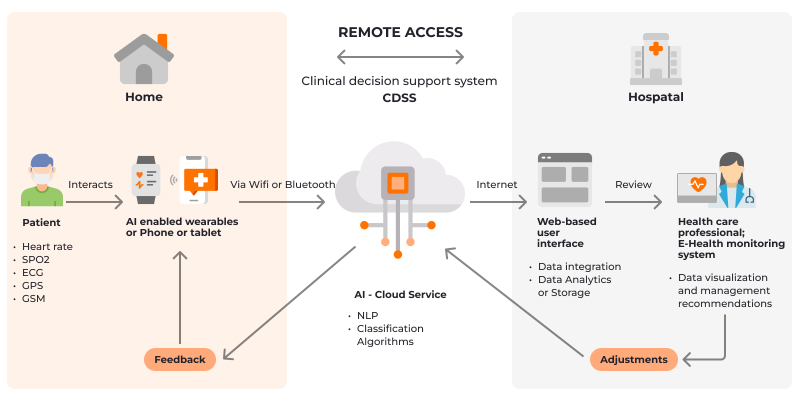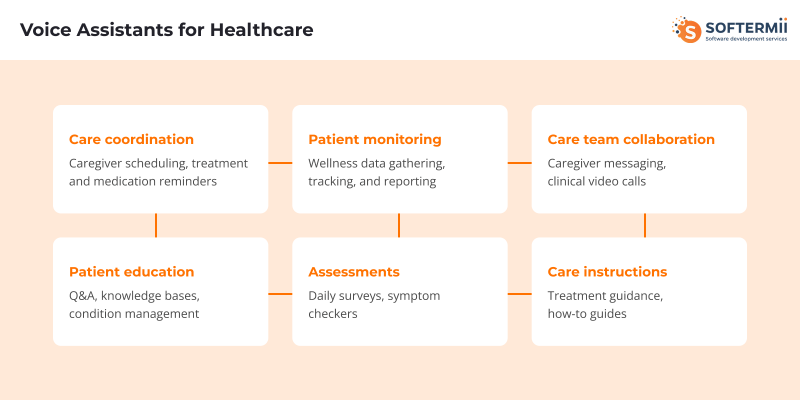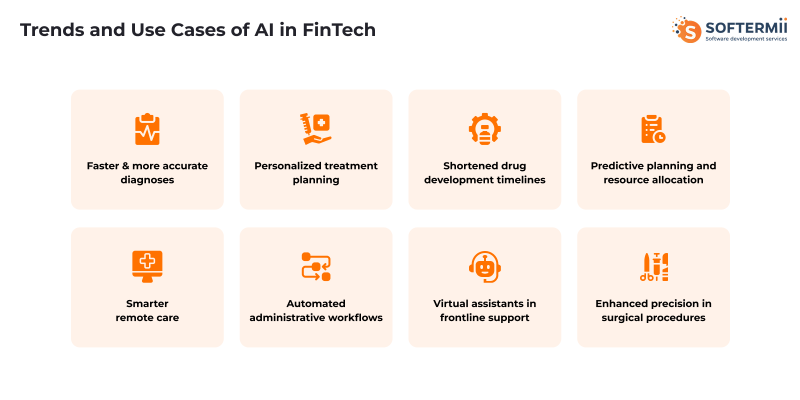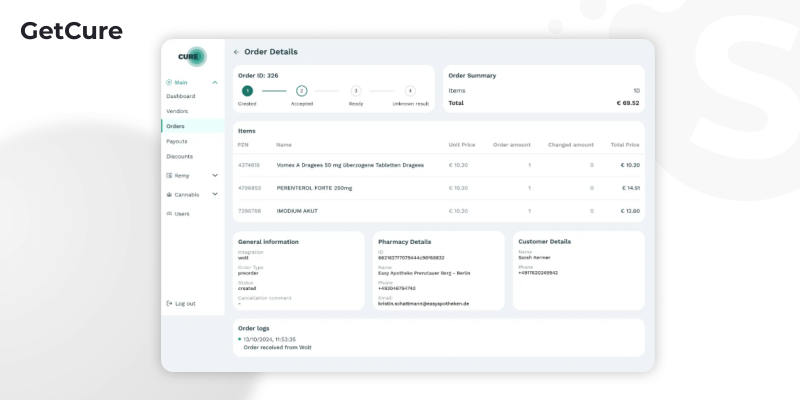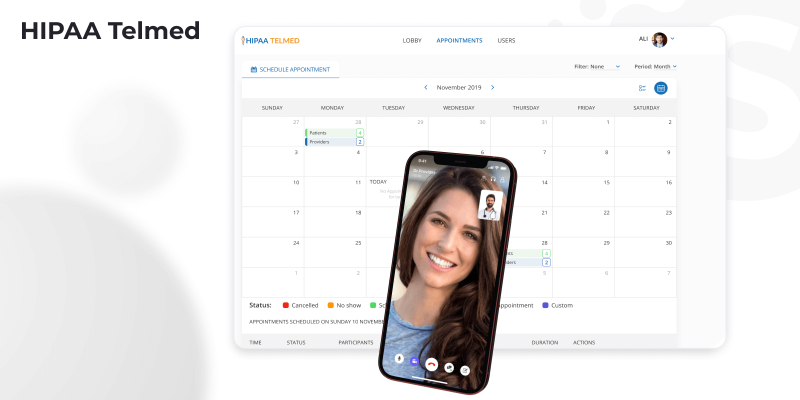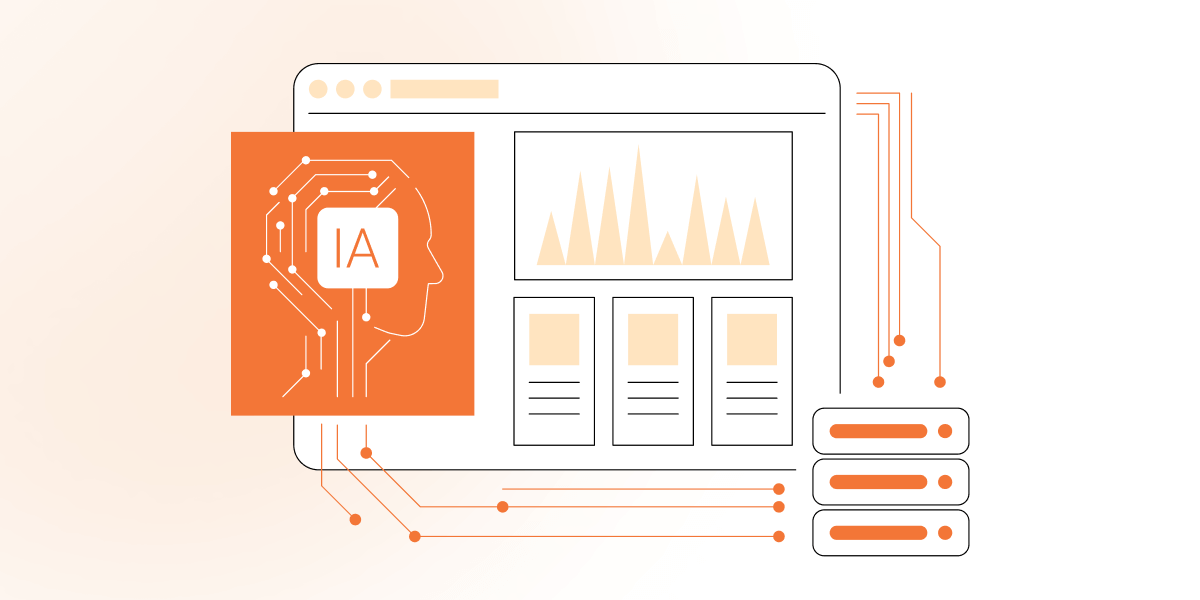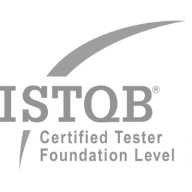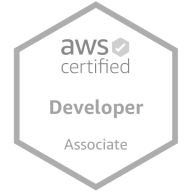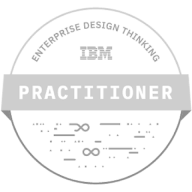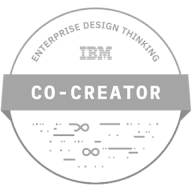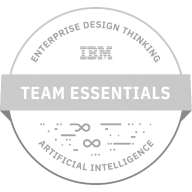
AI in Healthcare: Benefits, Examples, and Opportunities Explained
Want to know more? — Subscribe
Healthcare is going through major changes. New AI technologies enable providers to deliver faster, more personalized, and more efficient care. Hospitals are adopting solutions to support diagnosis, personalize treatments, manage administrative tasks, and improve patient monitoring.
Artificial intelligence is already having a significant clinical impact and earning the trust of healthcare professionals. By May 2025, the FDA had approved 1248 AI/ML-enabled medical devices, with 235 approved in 2024 alone and 148 in the first five months of 2025—most of these approvals center on radiology and cardiovascular diagnostics.
This article explores the key benefits and challenges of AI adoption, examines real-world use cases, and discusses future possibilities for these healthcare innovations.
AI Impact on Healthcare
AI's capacity to analyze complex datasets in real time is already invaluable. In diagnostics, machine learning models support the early detection of diseases. On the operational side, AI is helping providers reduce administrative overhead. It automates time-consuming tasks such as scheduling, billing, and claims processing.
In 2024, the global AI healthcare market reached a valuation of $26.57 billion, reflecting strong adoption and investment. Looking ahead, experts forecast this market to grow at a CAGR of 38.6%, reaching $187.69 billion by 2030.
According to Deloitte, 75% of leading healthcare companies are already piloting or scaling generative AI initiatives. Ninety-two percent of healthcare leaders view generative AI as a powerful tool for operational efficiency. 65% believe it can improve clinical decision-making by analyzing complex patient data.
Real-world adoption of artificial intelligence in healthcare is accelerating. It's helping with the tasks that often consume significant time and resources from medical staff.
AI chatbots are already assisting with documenting patient visits, generating clinical summaries, and identifying patterns of symptoms. With rising investment, regulatory approvals, and strong executive support, AI has moved beyond experimentation.
Benefits of AI in Healthcare
AI is delivering measurable benefits across clinical care, administrative functions, and strategic decision-making. It automates routine processes, enhances operational efficiency, reduces costs, and enables more informed decisions that support patient outcomes and long-term planning.
Image Benefits of AI in Healthcare
Increased Operational Efficiency
AI automates repetitive, rule-based tasks, such as appointment scheduling, billing, and data entry. By automating 30–50% of low-value manual work, providers can shift their focus to patient care and strategic priorities. Artificial intelligence plays a critical role in reducing administrative fatigue and burnout.
Faster Decision-Making
Predictive analytics supports earlier detection of patient risks, disease outbreaks, and operational bottlenecks. Organizations using AI report 25% faster decision-making and up to 20% greater forecasting accuracy. It allows companies to respond proactively and improve outcomes and resource allocation.
Improved Diagnostic Accuracy
Advanced algorithms help clinicians by analyzing complex images and test results. These systems spot subtle patterns that might go unnoticed by the human eye. This support reduces diagnostic errors and speeds up early detection. The outcome is better patient prognosis and more timely care.
Better Resource Management
AI forecasting tools help optimize staffing, inventory, and equipment usage. Clinics optimize resource allocation in real time, avoid over- or understaffing, and maintain service levels even under pressure.
Streamlined Patient Engagement
Automated tools enable consistent and timely communication with patients. Reminders, follow-ups, and educational messages keep patients on track. This improves treatment adherence and overall satisfaction.
Cost Reduction
Artificial intelligence in healthcare can streamline workflows and minimize diagnostic errors. It helps reduce unnecessary tests, hospital readmissions, and administrative overhead. This also leads to significant cost savings for hospitals and patients.
Accelerated Drug Discovery and Development
Machine learning models accelerate the search for promising drug candidates by analyzing biological data and predicting potential outcomes. This shortens development times and reduces costs, enabling new therapies to reach patients more quickly.
Improved Population Health Management
Predictive analytics analyzes trends across patient groups to identify risks and forecast healthcare needs. This supports preventive care efforts and helps organizations move from reactive treatment to proactive health management.
Challenges of AI in Healthcare
Despite its transformative potential, the adoption of AI in healthcare presents several critical challenges. Outdated infrastructure, fragmented data systems, and gaps in workforce readiness can slow progress.
For many organizations, successful implementation requires strategic investment, cross-functional alignment, and a clear roadmap for long-term integration.
Image Challenges of AI in Healthcare
Regulatory Complexity
Healthcare operates under strict rules around patient safety, data management, and device approvals. Ensuring that AI solutions meet these standards is a significant challenge. It requires ongoing monitoring, thorough validation, and detailed documentation. Any oversight can lead to costly fines and delay the adoption of new technology.
Legacy Infrastructure Limits Scalability
AI systems depend on modern and flexible IT environments. Yet, 65% of digital healthcare initiatives fail due to outdated infrastructure. Legacy systems often lack the necessary interoperability, security, and speed to support scalable AI deployments.
Without modernization, organizations risk slower project delivery and missed competitive opportunities.
Interoperability and Data Integration
Healthcare data is scattered across many systems, often in incompatible formats. This fragmentation makes it hard to bring information together for a complete view. Without strong interoperability standards and smooth data integration, AI tools can't access all the data they need. That limits their ability to deliver accurate insights and improve patient care.
Data Privacy and Security Concerns
Protecting patient information is critical. Healthcare data is a frequent target for cyberattacks. Introducing AI can create new security risks if safeguards aren't carefully planned and maintained. Balancing patient privacy with the need to use data effectively demands advanced techniques and strict governance.
High Costs and Low Financial Visibility
Adopting AI solutions often requires a significant upfront investment, especially for organizations that rely on legacy financial systems. 65% of healthcare CFOs cite outdated tools as a major obstacle to cost control and strategic budgeting.
Without AI-driven financial modeling, pinpointing inefficiencies and accurately forecasting long-term costs becomes a challenging task.
Generic Patient Experiences Fall Flat
Patients expect personalized, responsive care, but many healthcare systems still offer one-size-fits-all experiences. 80% of users prefer personalized services, so failure to customize communication, treatment, or follow-up leads to disengagement and lower satisfaction. When data systems and care pathways are integrated effectively, artificial intelligence can offer hyper-personalization at scale.
Talent Shortages and Skill Gaps
AI adoption also exposes a growing skills gap in the healthcare workforce. Around 70% of companies report difficulty finding talent with the right technical and clinical AI expertise.
This shortage slows development, restricts innovation, and increases the implementation costs. Recruiting and retaining skilled professionals (e.g., data scientists, AI engineers, digitally proficient clinicians) has become a critical challenge.
Repetitive Manual Work Slows Teams Down
Healthcare knowledge workers spend up to 40% of their time on routine tasks, such as data entry, documentation, and reporting. Not only do these inefficiencies impact team morale, but they also slow down care delivery.
Artificial intelligence has the potential to automate 30–50% of low-value manual work. Yet, many organizations struggle to identify which processes to automate or lack the necessary tools to do so effectively.
Missed Trends and Reactive Planning
Timing is everything in healthcare. Yet 72% of leaders admit their organizations are not equipped to detect emerging trends in time. Without AI-driven predictive analytics, decisions are often made using outdated information. This, in turn, increases the risk of missed growth opportunities and slower responses to patient needs.
Real-life Examples
Technology is transforming healthcare at every level. The next companies demonstrate how digital tools can reduce administrative pressure and improve care delivery.
Cera: Rethinking Home Care Delivery
Cera conducts over 60,000 in-home visits daily across the UK and Germany. It uses connected tools for early health monitoring and care coordination. This way, Cera helps prevent unnecessary hospital admissions and improves outcomes for millions of people.
The platform provides nurses and caregivers with real-time insights. It becomes easier to notice early signs of health decline and take prompt action. The best part? They can do it right where patients feel most comfortable: in their own homes.
XpertDox: Fixing the Medical Coding Bottleneck
XpertDox provides a digital platform that automates medical coding with exceptional accuracy. It processes over 94% of claims without manual input. These services also serve a wide range of care settings, from urgent care clinics to large healthcare systems. After partnering with Nao Medical in New York, the clinic experienced the following changes:
- a 15% increase in captured charges;
- a 60% improvement in code quality;
- a 40% reduction in processing delays.
Tempus: Supporting Better Treatment Decisions
Tempus helps doctors personalize care by combining clinical and molecular data into clear insights. It supports multiple conditions, with a strong focus on oncology. The company offers physicians tools to simplify matching patients to the most appropriate therapies or clinical trials.
It also partners with research teams and pharmaceutical companies to speed up the development of new treatments.
Augmedix: Cutting Documentation Time for Clinicians
Augmedix simplifies one of the biggest time drains in healthcare: clinical note-taking. Its platform listens to doctor-patient conversations and converts them into comprehensive visit summaries.
Today, it supports nearly half a million medical professionals, used across hospitals and outpatient settings to alleviate administrative strain.
Verantos: Making Real-World Data Reliable
Verantos focuses on enhancing the utilization of existing data by healthcare organizations. It turns information from records, claims, and registries into structured evidence. This way, the company ensures it meets all the standards for regulatory review or scientific research.
Supported by partnerships with the FDA and NIH, Verantos helps healthcare and life sciences companies build stronger cases for treatments and track safety.
Trends of AI in Healthcare
More organizations are adopting advanced technologies to enhance care delivery, reduce costs, and derive greater value from clinical data. Here are key trends shaping how healthcare companies are integrating artificial intelligence into day-to-day workflows.
Faster & More Accurate Diagnoses
Providers use imaging analysis tools to support radiologists in reviewing X-rays, CT scans, and MRIs. These tools help identify signs of disease earlier and with greater precision. As a result, care teams can intervene sooner and reduce diagnostic errors.
Personalized Treatment Planning
Hospitals integrate platforms that recommend treatment options based on a patient's medical history, lifestyle, and genetic profile. Such personalized care helps clinicians improve patient response and reduce trial-and-error in prescribing.
Shortened Drug Development Timelines
Pharmaceutical companies are utilizing advanced modeling and simulation technologies to predict the performance of potential drug compounds before they enter the laboratory. This approach can cut early-stage research time by up to 50%, with estimated annual savings of $26 billion globally. This way, promising therapies can move into clinical trials and reach patients sooner.
Predictive Planning and Resource Allocation
Data patterns are being utilized to predict patient demand and supply needs, thereby optimizing staffing schedules. This capability is especially critical in hospital environments. Accurate predictions can help reduce wait times and avoid resource shortages.
Smarter Remote Care
Connected health platforms now enable real-time monitoring of patients from the comfort of their own homes. They track vital signs, symptoms, and adherence to treatment. In parallel, clinicians spot potential issues early without requiring in-person visits. This approach is beneficial for individuals with chronic conditions and those residing in rural areas.
Automated Administrative Workflows
Administrative expenses account for between 20% and 25% of total healthcare spending. Integrating AI solutions in healthcare environments allows for the automation of a wide range of repetitive tasks. Streamlining these areas significantly reduces waste and improves service delivery.
Virtual Assistants in Frontline Support
Many providers now offer 24/7 virtual assistance for patients. This helps with scheduling appointments, providing care instructions, and addressing common questions. Clinical staff can focus their time and expertise on more complex and high-priority tasks.
Enhanced Precision in Surgical Procedures
Surgical systems use real-time imaging and sensor data to improve accuracy and control. These advances lead to less invasive procedures, faster recoveries, and fewer complications.
Image Trends of AI in Healthcare
Our AI Implementation Expertise
Softermii has 11 years of experience building digital products for the healthcare industry. We understand the challenges of delivering care in such a regulated environment. We work with hospitals, clinics, pharmacy chains, and telemedicine providers. Here are two examples of our work:
GetCure
GetCure is a cross-platform tool that helps pharmacies manage orders from multiple sources. It supports direct and third-party orders in one place. The system is designed for large-scale operations across different countries.
Business Impact
- One system for all orders: Combines website, phone, and delivery app orders into a single platform.
- Faster phone processing: An AI voice assistant turns calls into structured data.
- Operational scalability: Built for multi-country rollout with local integrations.
- Less manual work: Automates intake, updates, and scheduling.
Key Features
- AI voice assistant: Handles orders via natural speech or PZN codes.
- Returning customer detection: Artificial intelligence recognizes repeat callers for faster service.
- Live pharmacy updates: Shares opening hours, closures, and emergencies.
- Live order tracking: Syncs with platforms like Uber Eats and Wolt.
- System integrations: Works with major delivery and pharmacy tools.
- Active in 3 countries: Live in Germany, France, and Austria, with expansion in progress.
HIPAA Telmed
HIPAA Telmed is a telemedicine platform built for the US healthcare market. It meets all HIPAA privacy rules. The platform also helps providers save time with automated notes and better appointment handling.
Business Benefits
- Remote care access: Supports secure video visits from anywhere.
- Workflow automation: AI automatically summarizes patient visits.
- Better patient communication: Simplifies doctor-patient interactions.
- Data security: Fully compliant with healthcare privacy regulations.
Main Features
- Video and audio calls: Reliable and secure virtual visits.
- Appointment tools: Built-in scheduling and calendar.
- File sharing: Secure exchange of patient records.
- AI visit summaries: Auto-generated consultation notes.
- Payment support: Integrated billing and transactions.
Conclusion
New technologies in healthcare allow for better patient care, streamlined operations, and faster decision-making. Challenges like cost and system integration persist, yet the value of AI innovations continues to grow.
Better performance starts with better software. Softermii's expert team provides customized solutions designed to enhance efficiency and improve patient care. Reach out to us and begin your digital transformation journey in healthcare.
Frequently Asked Questions
How are AI systems used in healthcare?
Artificial intelligence tools make care more efficient, accurate, and easier to deliver through the following methods:
- Faster diagnosis: AI assists doctors in identifying early signs of disease by analyzing scans, lab results, and patient records.
- Personalized care: Recommends treatments tailored to a person's unique health history, genetics, and lifestyle.
- Less admin work: AI handles billing, scheduling, and writing clinical notes.
- Remote patient monitoring: Tracks symptoms and vital signs at home.
- Better planning: Hospitals can more easily predict patient numbers and plan staffing and supplies.
- Support for drug research: Helps test ideas more quickly and design more effective clinical trials.
What are the main benefits of AI in healthcare?
AI offers a wide range of benefits across healthcare operations and patient care:
- Boosted efficiency: Automates tasks like scheduling and billing, freeing staff to focus on patients.
- Faster decisions: Early risk detection and improved forecasting help providers act sooner.
- More accurate diagnoses: Detects patterns in medical data that humans might miss, reducing errors.
- Enhanced clinical support: Provides personalized treatment recommendations based on diverse data sources.
- Optimized resources: Improves staffing, inventory, and equipment use to maintain quality.
- Improved patient engagement: Automated reminders and follow-ups increase adherence and satisfaction.
- Cost savings: Eliminates unnecessary tests, reduces readmissions, and minimizes administrative work.
- Faster drug development: Speeds discovery and lowers costs for new treatments.
- Stronger population health: Forecasts needs and supports proactive, preventive care.
What challenges does healthcare face in adopting AI?
Common challenges include for following:
- Regulatory complexity: Strict regulations on patient safety and data protection demand constant monitoring and thorough validation, which can be challenging and time-consuming.
- Legacy infrastructure: Many healthcare systems rely on outdated IT platforms. They lack interoperability and strong security, limiting the ability to deploy AI solutions at scale.
- Interoperability and data integration: Patient data is scattered across multiple and incompatible systems. This fragmentation makes it hard for AI to access a full picture.
- Data privacy and security: Introducing new technologies introduces risks that require robust security measures and stringent governance.
- High costs and low financial visibility: AI adoption requires significant upfront investment. Existing financial tools often don't provide clear visibility into these costs.
- Generic patient experiences: Many providers still offer standardized care. However, patients are increasingly expecting personalized services tailored to their specific needs.
- Shortage of skilled professionals with expertise in both healthcare and AI.
- Repetitive manual work: Routine tasks consume a significant amount of staff time. Automating these processes effectively remains a challenge for many organizations.
- Missed trends and reactive planning: Without predictive analytics, businesses often respond too late to emerging patient needs and market shifts.
How about to rate this article?
1 ratings • Avg 5 / 5
Written by:



